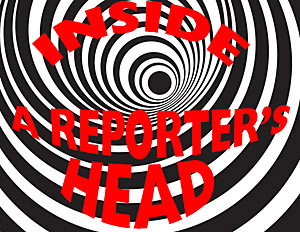


Get Inside a Reporter’s Head to Prep for a Media Interview
[by Howard Fencl] When you’re faced with a media interview on a breaking crisis or a tough issue your organization’s working through, media training experts will tell you to anticipate the toughest questions you can imagine.
But taking a step further and anticipating the reporter’s approach to covering your issue is a critically important exercise. Step back from your issue and get inside the reporter’s head!
Here’s a rundown of questions many TV news reporters ask themselves when they begin to gather elements for their stories:
- What’s the headline to this story that can help me promote it to my audience in 10 seconds or less?
- Why should my audience care about this story?
- Who is the villain in this issue?
- Who is the victim?
- Who is the vindicator?
- How likely is it that I get interviews with all of them today?
- What B-roll video can I shoot? Are the visuals compelling or are they just building exteriors and talking heads? How can I goose boring B-roll video with graphics?
Have your team anticipate the answers to these questions before anyone from your company goes on camera – the exercise may inspire additional key messages you’ll want to deliver that may otherwise never have occurred to you.
You can be certain that reporters will bone up on your company before showing up at your door. They’ll look at your web site. They’ll look at bios of your leadership, perhaps run criminal checks on them. If you have a board they’ll look at your directors as well. They’ll scour the web for other news coverage of your company. They’ll check into what you do on social media – and what social media users do to you.
Subconsciously, reporters will begin laying out a framework for the story. How should it play out in editing? If victim interviews are particularly emotional, they may open their piece with victim soundbites to grab their audience’s attention and empathy. They’ll think about how much time their producer has given them for their story so they can make editing decisions for their on-air piece, and perhaps upload unused interviews to a longer treatment on the web.
They’ll want to interview the perceived villain of the story, usually last so they can play back what they’ve heard firsthand from victims. You may want to let a written statement speak for you instead. That may work with some reporters, but if your issue is particularly eyebrow-raising and you’re the perceived villain, your written statement and polite interview refusal won’t sit well. The reporter may start heading your way to conduct an ambush interview – they’re uniquely unpleasant, but we’ve covered how to deal with those.
If you’ve been unfairly cast as the villain, be proactive and make yourself available for interviews so you can tell your side of the story and explain why you’re a vindicator, and how you’re working to resolve the issue so it never crops up again. It won’t be easy. Emotional victims make for great interviews that can also whip social media trolls up in a frenzy. Taking the extra time to think through how a reporter may tell your story can strengthen your case, win vocal allies, and move the perception of you and your organization to vindicator.
###
Background vector image created by: Freepik – www.freepik.com